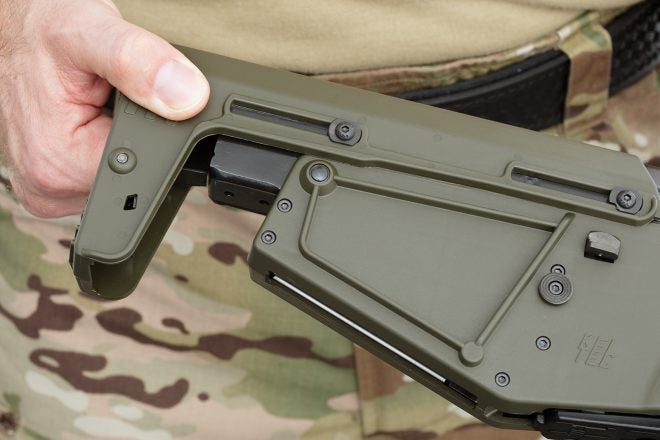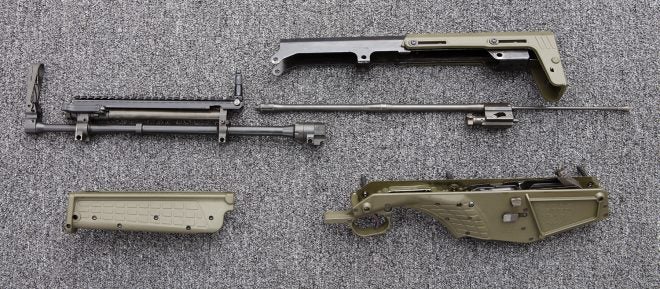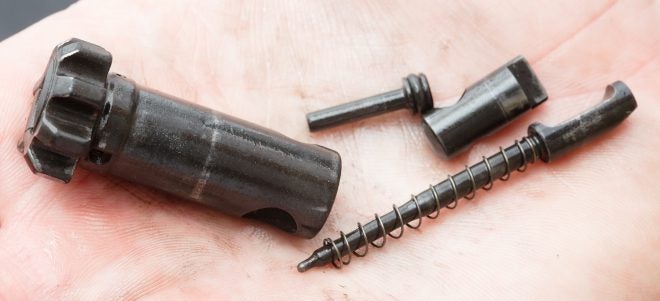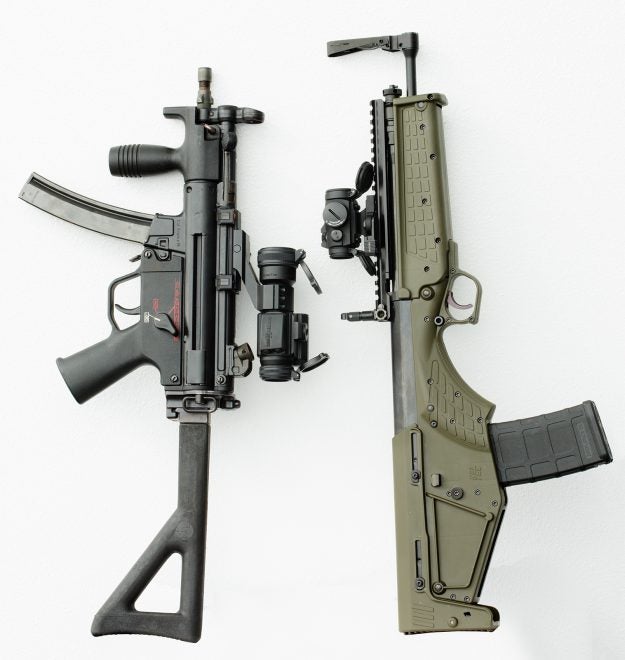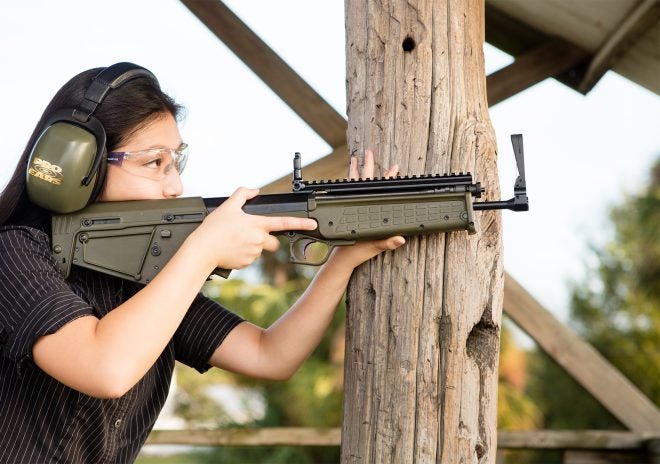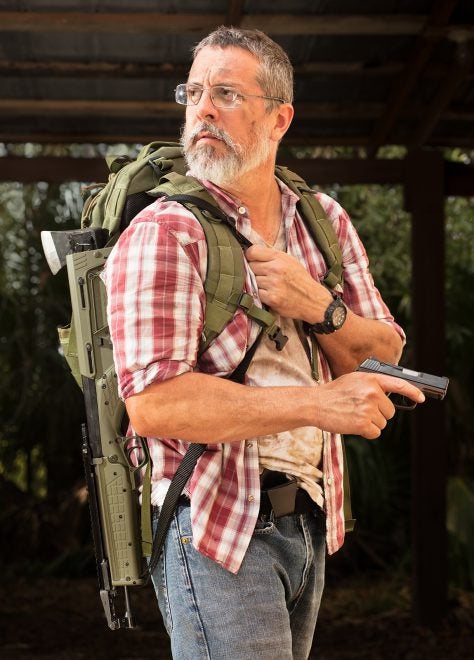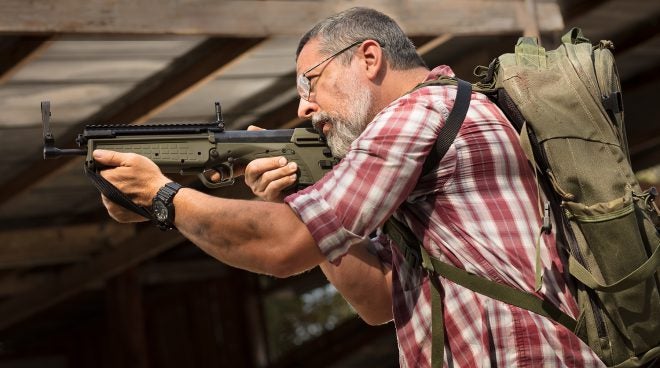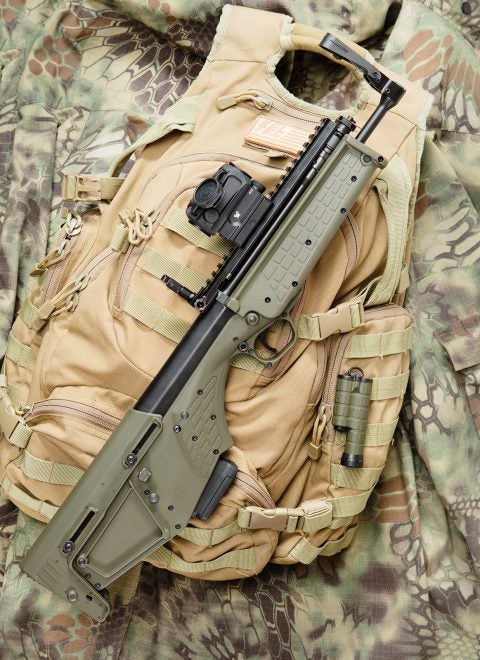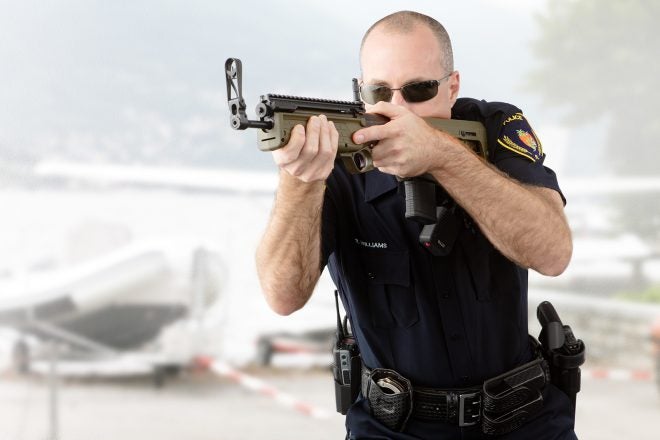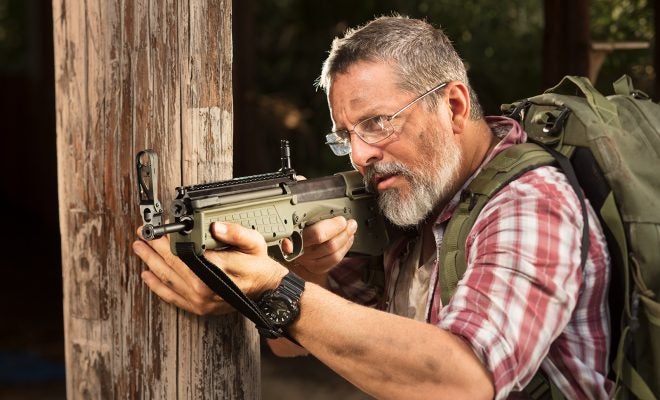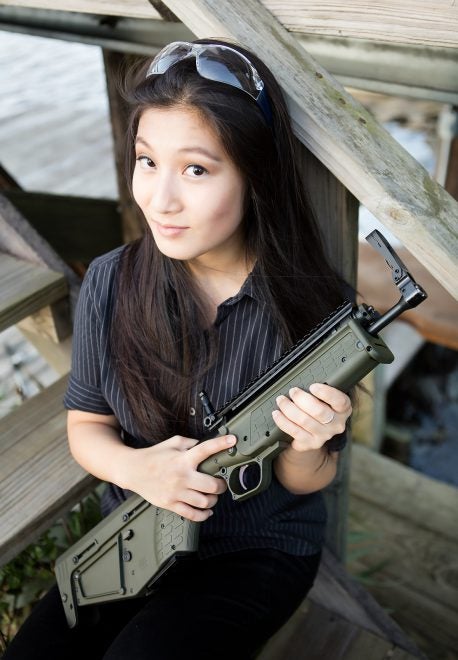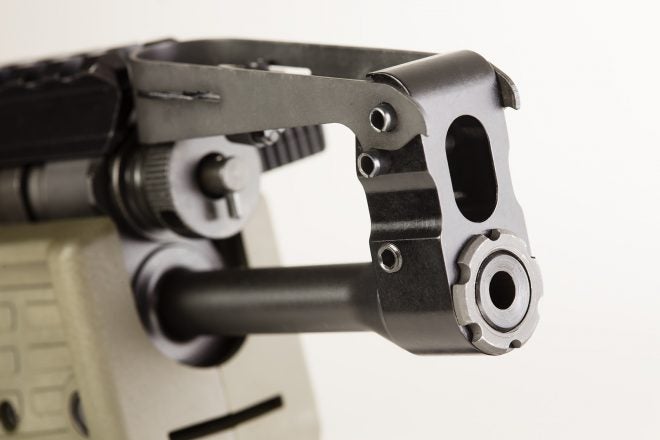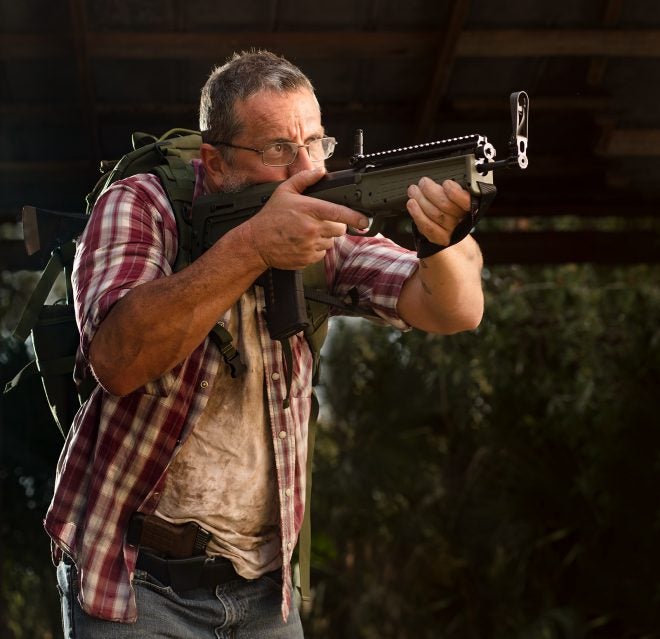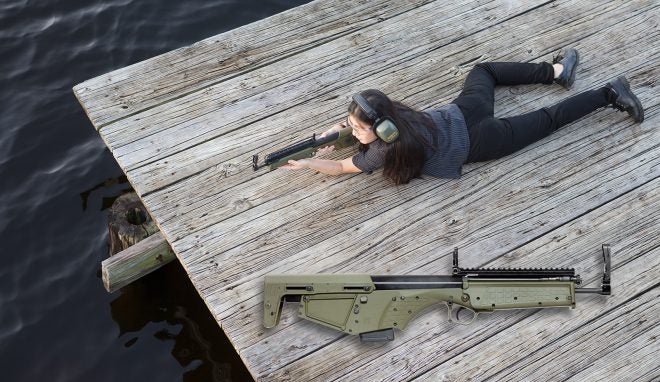Keltec’s RDB-S: What It Actually Is
Oleg Volk 01.04.18

Kel-tec RDB-S is not out yet, but it’s become slightly infamous thanks to a creative ad agency. Expected in retail stores by Spring 2018, it’s a lightweight variant of the RDB-C rifle. Unusually for a bullpup, it has a variable length stock. Extended, it brings the overall length past the legally mandated 26 inches.
Pulling on the stock clicks it open, pressing a latch on the underside of the buttpad releases it. Length of pull difference is about 2.5 inches, making for comfortable bladed position in open state and equally comfortable isosceles in closed.
As with the other RDB variants, it operates with long stroke gas piston. RDB bolt over-travels considerably past the magazine to reach the ejector, lengthening the cycle. That gives it a light recoil despite the minimal overall weight. In automatic mode, it also keeps the cyclic rate down to 500rpm. As you can see, the barrel is fairly thin and weighs a fraction over one pound. Field-stripping takes very little time: three captured pins hold everything together. Detail stripping takes not much longer.
The bolt and the carrier are fairly lightweight compared to most long stroke designs. The firing pin is sprung against accidental primer ignition.
RDB-S is about the same weight and size as MP5K PDW submachine gun, but it has 16.1″ barrel instead of 6″, and chambers a .223 cartridge instead of 9mm. Felt recoil is similar, accuracy is better with the RDB-S.
The unconventional hold places the hand right around the bore line, making point shooting more intuitive. For shooters with very small hands, I would recommend stick-on pads to thicken the grip, bringing the hand closer to the trigger. A user who might prefer a pistol grip configuration can swap furniture in a minute, it’s all cross compatible.
Originally developed as a survival rifle, RDB comes with an excellent set of folding iron sights. Folded, they stay out of the way, raised provide a backup to optics.
The minimal weight and stowed length make RDB-S a viable candidate for a backpack rifle.
With magazines and ammunition more common than .30 carbine, and with better accuracy and effective range, it provides both hunting and defensive capabilities.
With the downward ejection behind the magazine, it is comfortable for left-handed shooters.
Even without a bipod or a sandbag rest, practical accuracy is excellent due to neutral balance and support near the muzzle. Any motion by the far-flung support hand confers less angular movement than with a conventional rifle, while the centrally placed firing hand has less leverage for accidental disturbance of aim. Placing the support hand this far forward with an AR15 would cause fatigue much sooner.
The light weight also makes it a good weapon for teens or smaller statured shooters. A 5-foot female can run it much easier than a 7-pound conventional AR15 or AK74. The main down sides are also functions of the design:
- Checking of the chamber status is slower than on a conventional rifle.
- Downward ejection can be a problem if shooting sitting in shorts or prone with short sleeves. A clip-on brass catcher fixes that.
The pluses are more numerous:
- Empty casings don’t end up in the faces of people next to the shooter, or bounce off barricade or wall into the shooter’s face or arms.
- Five pounds is easier to carry or hold up than six to seven pounds typical of competing designs. You can have an RDB-S with a red dot, a sound suppressor and a full magazine for what a bare-bones Sig 556 weighs.
- Felt recoil is more like 22WMR than 5.56.
- Gas system can be tuned to work with any load, and also for sound suppressors. Minimal gas blowback.
- Very slim form, especially with a flush-fitting 10-round magazine.
- 16.1″ barrel compared to 8″ of a similar length AR15.
- Variable length of pull with adjustable stock, uncommon for bullpups.
- Folding iron sights of good quality.
- Very high grip keeps the rifle from rolling even if a relatively heavy optic is mounted. Also keeps muzzle from flipping up on firing.
- Simple, easy to maintain design. If you look at the parts diagram in the instruction manual, you will see that most of the parts by numbers are screws and nuts, while the actual mechanism is very simple.
The light barrel weight is the limiting factor on both accuracy and heat endurance. Shooting for groups, I got 1.5MOA with 55gr Winchester Silvertips, 3-4MOA with budget ball ammunition. Since the twist is 1:7, much better results could be expected with heavier bullets. I just had none on hand when trying out several samples of RDB-S. That was with a prototype rifle, the production barrels are supposed to be rather better. In rapid fire, one 30-round magazine is about all it will hold before groups will increase — but the rifle will run fine for at least 100 shots fired back to back. I have not tested it past that, as the forend got quite toasty. RDB-S is not a military rifle.
It is a backpack rifle. Since a survivalist might have to fire it with unprotected ears, the muzzle is threaded for a thread extender under the front sight base. With the extender in place, sound suppressors, linear compensators or other muzzle devices may be added to reduce or at least project the blast away from the shooter.
And, until zombie apocalypse or a civil war require combative uses, it works equally well as a fun plinker, a lightweight game-getter or a home defense weapon.
